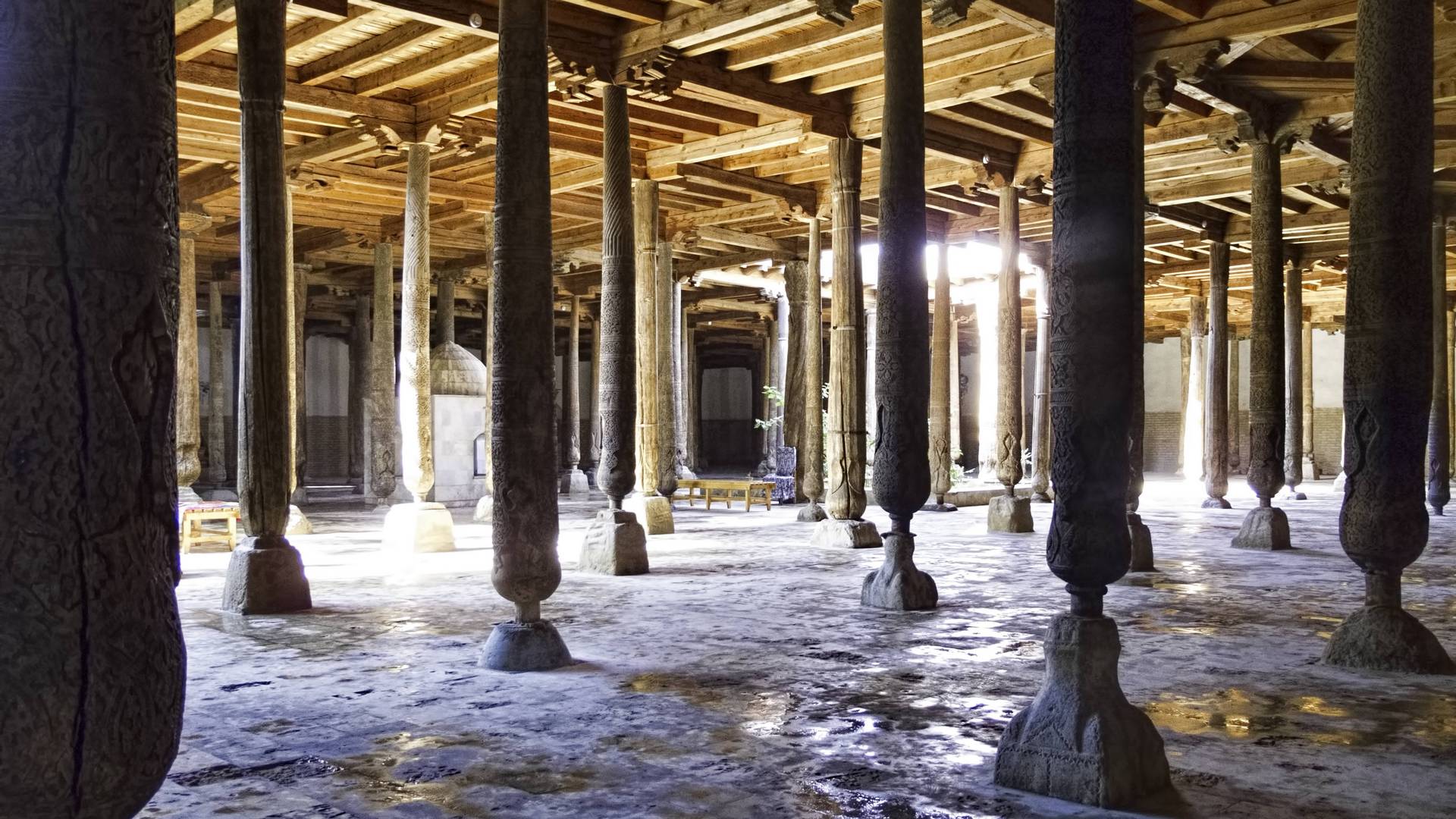Description
Property Name: Juma Mosque
Inventory No: 998-6237-3
Date of infill of the inventory form: 2009-08-04
Country (State party): Uzbekistan
Province: Khorezm
Town: Khiva
Geographic coordinates: 41° 22′ 38.91″ N
60° 21′ 35.14″ E
Historic Period: 18th century, 2nd half
Year of Construction: 10th century, rebuilt 1788-1789
Style: Inaqid
Original Use: Mosque
Current Use: Museum
Architect: Unknown
Significance
Juma Mosque (Friday mosque), according to an Arabian geographer Makdisi, traces back to the 10th century. The current structure and minaret was rebuilt over the old mosque’s site in 1788-89 by Muhammad Amin-Inakh who was the ruler of Khiva during 1763-1791. The reconstruction is bigger than the old one. It is a well-known mosque in Central Asia due to its traditional and archaic position. It distinguishes from the other open-court mosques in Central Asia.
Selection Criteria
iii. to bear a unique or at least exceptional testimony to a cultural tradition or to a civilization which is living or which has disappeared
iv. to be an outstanding example of a type of building, architectural or technological ensemble or landscape which illustrates (a) significant stage(s) in human history
v. to be an outstanding example of a traditional human settlement, land-use, or sea-use which is representative of a culture (or cultures), or human interaction with the environment especially when it has become vulnerable under the impact of irreversible change
State of Preservation
Since the first construction of the mosque, 24 of its colums originate from the 10th and 16th centuries. These wooden pillars are the oldest in Uzbekistan so in Central Asia. The monument is restored after Khiva is declared in World Heritage site by UNESCO in 1990. Due to aging, visible deterioration problems especially abrasion occur on the wooden pillars and their marble pedestals.
References
Prochazka, Amjad Bohumil, KHAWARIZM, An unknown civilization between the caspian and the aral sea, Saudi Arabia, 1990
Gombos, Karoly; Gink, Karoly. The pearls of Uzbekistan, Bukhara, Samarkand, Khiva, Corvina Press, Budapest, 1976
Kalter, Johannes; Pavaloi, Margareta. Uzbekistan: Heirs to the Silk Road, 2003
Mankovskaya, L.. A Museum in the Open. A Reserve of Khorezm Architecture, Tashkent, 1982.


